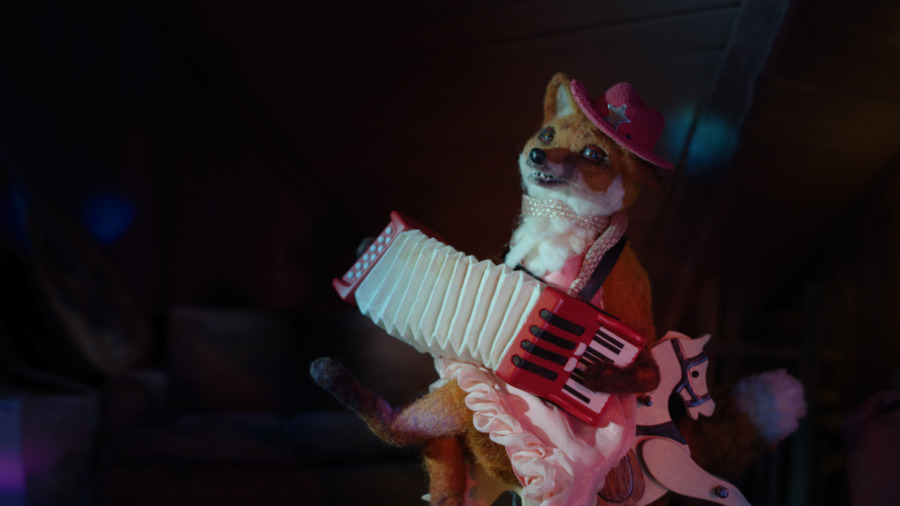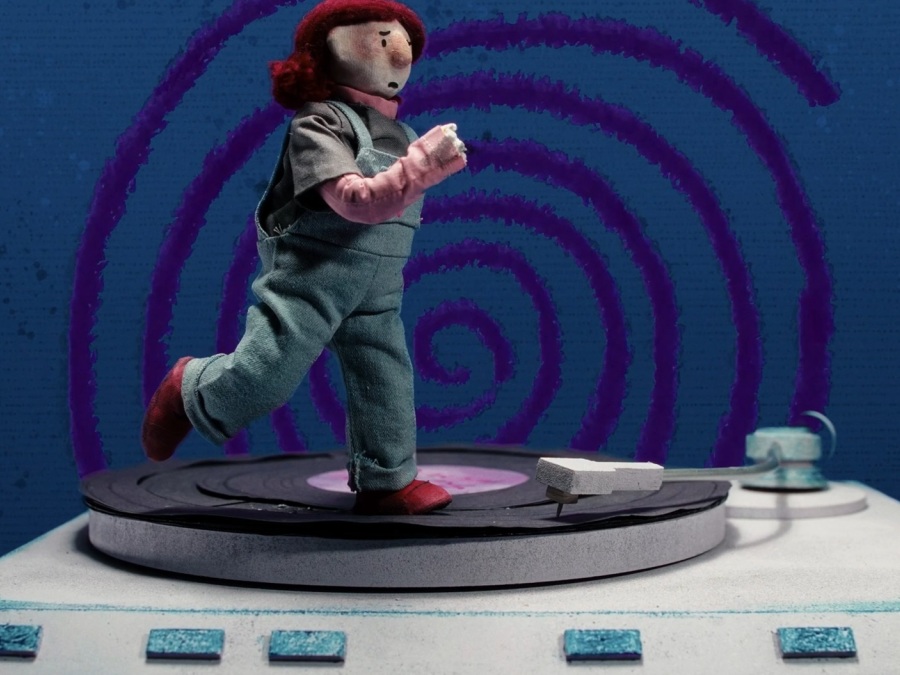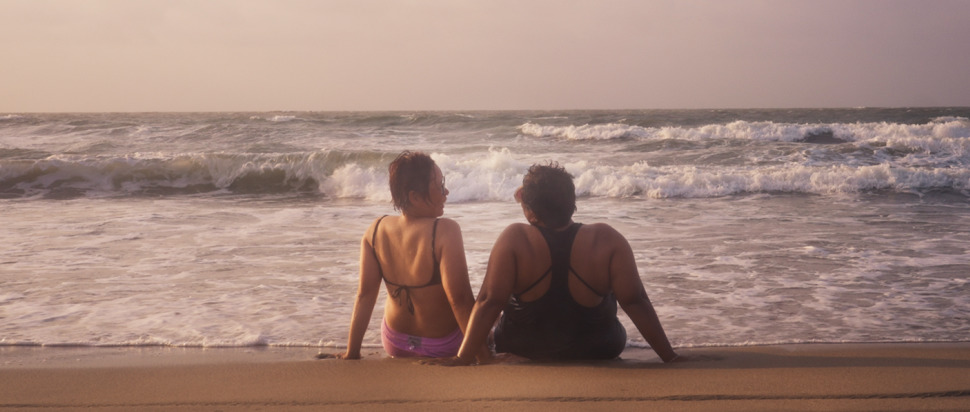Indigo Korres on ten years of SQIFF
Scottish Queer International Film Festival turns ten – the festival's director, Indigo Korres, reflects on SQIFF's contribution to Scotland's queer scene over the past decade, looks to its future and helps pick out some highlights from this year's event
Over the past decade, the Scottish Queer International Film Festival (better known as SQIFF) has been a bastion of queer, experimental film in Scotland. It was founded in 2015 by members of Glasgow lesbian and queer filmmaking collective Lock Up Your Daughters, amongst others, who grew the festival from its grassroots origins into the SQIFF we know today. “They saw the need for queer independent cinema in Scotland because there just wasn’t any at the time,” reflects SQIFF's current director, Indigo Korres.
Since becoming SQIFF director in 2022, Korres has upheld the legacy of those founders, and on top of the annual festival, she's incorporated year-round filmmakers’ workshops into SQIFF's remit. As well as expanding beyond the annual festival format, these workshops, talks and screenings occur within and outwith the Central Belt, allowing rural queer communities to join the discussion. The result is many more films being made in Scotland by trans and non-binary, queer people of colour, and refugee and migrant artists. “This year we’ve seen a big increase in films being made by Scottish queer filmmakers,” notes Korres. “Almost double previous years.”

A still from Drag Fox.
When I ask about SQIFF’s future, Korres says she dreams of a permanent home: an independent, queer hub for collaboration and community rooted in Glasgow. Her vision is an accessible venue with workshop space and a regular film programme showing mainstream and independent cinema that wouldn’t otherwise come to Scotland. This desire for artist-led collaboration can be felt palpably in this year's programme, though, from the exhibition The River and The Glen, Camp Trans Scotland with artist-run space Listen Gallery to this year's guest programme A Nova Era by Brazilian artist-run project Mostra Queer Brazil. Korres is particularly excited about the latter. “Being Brazilian, I love showing films from Brazil at SQIFF. Glasgow is really diverse, and I love it when people get to see stuff from their own cultures.”
One of SQIFF's priorities, Korres explains, is platforming underrepresented independent and experimental work. “Our community really wants to see fresh perspectives, not just the queer person dying, which we see a lot in mainstream queer media. We need to see joy, we need to see love, all of those beautiful human emotions.” Concentrating on short films, meanwhile, means that SQIFF can champion filmmakers who find feature or TV work inaccessible, and the programming team can curate a more diverse and vibrant lineup.
Many familiar favourites return this year, like the Scottish Shorts opening night and Animation Now, a collection of powerful animated films. Of the new strands, look out for Aunties, curated by Nat Lall, which honours the love given to us by the many and varied queer ‘aunties’ of our community. Another highlight is the Halloween night screening of The Serpent’s Skin, the sixth feature from Sydney-based trans filmmaker Alice Maio Mackay, who's only 20 years old. And Shatara Michelle Ford's Dreams in Nightmares, a road movie featuring three black queer femmes travelling across the US, will close proceedings. Korres describes it as “the most beautiful portrayal of polyamory that I’ve ever seen in film; it’s very poetic.”

A still from Colour Me Pink.
Returning to SQIFF this year is the 1993 documentary Cinema Fouad, which is part of the NO PRIDE IN GENOCIDE programme assembled by curator Huss. It's a portrait of Khaled El Kurdi, a trans woman living in Beirut who's grieving the death of her Palestinian lover. Korres had no qualms about screening the film at the festival for a second time: “SQIFF is not afraid of showing films which are important to revisit. Each film from the past resonates with what’s happening now.”
Unlike many other festivals in the UK, SQIFF uses a social model of disability to guide its structure, which means people with additional access needs can trust they will be provided for when they show up. From BSL interpretation to sliding scale tickets and travel funds, SQIFF is determined to set a standard of reliable and in-depth inclusion. “I really hope seeing our approach changes the industry in general,” Korres says. “We are always trying to remove barriers at the heart of what we do.” This extends to gender neutral toilets, which has become an increasing issue after the EHRC ruling in April incited anti-trans policies across the country. As the only trans woman film festival director in Scotland, Korres describes the complexity of steering the festival through this time. “Half of our team is trans; we believe trans people should be together, we’ll always be here.”
SQIFF has always been a place to meet new friends, future collaborators and potential lovers. It brings our LGBTQIA+ masses together at a time when many of our gathering spaces are being shut down. Korres’ time at SQIFF has taken the form of many different roles, but the constant of the festival has been the warmth and joy of the community. “The best advice I ever got, and I even have it tattooed, is 'go where it’s warm',” says Korres. “It speaks to working with people you feel good about, where you feel warm.” Anyone who’s ever attended SQIFF will have felt a similar warmth that moves unspoken through the cinema as the lights go down as we all weep and laugh together.
SQIFF, various venues, Glasgow, 27 Oct-1 Nov; full programme at sqiff.org
